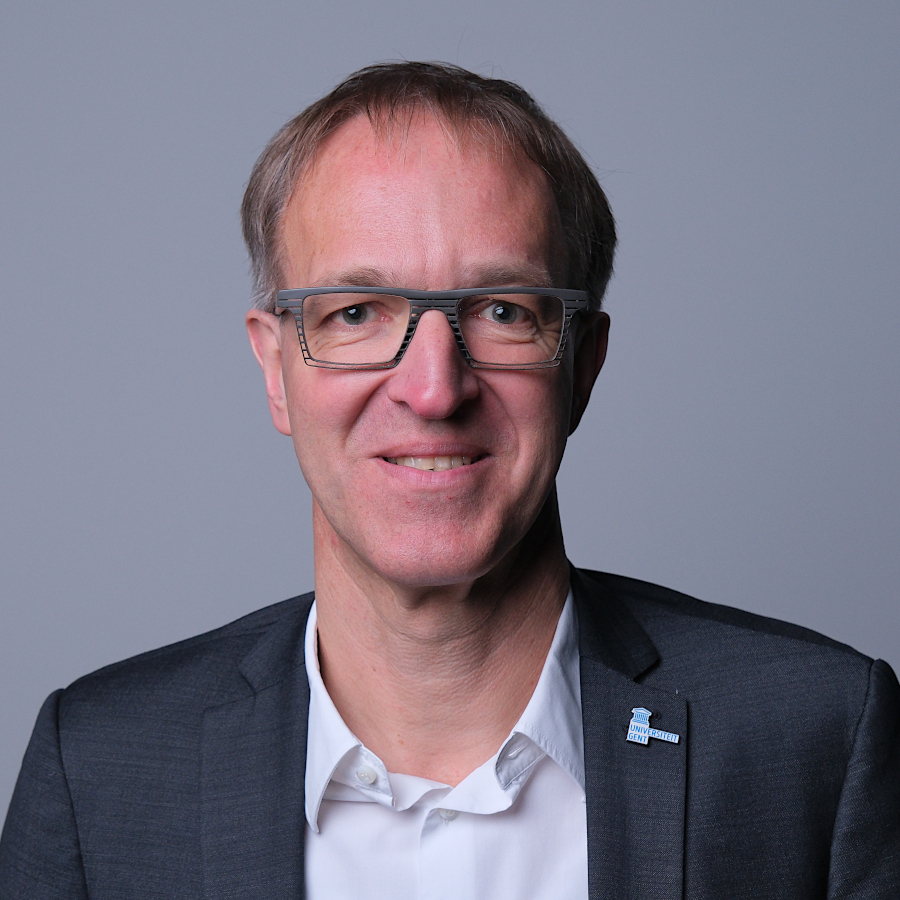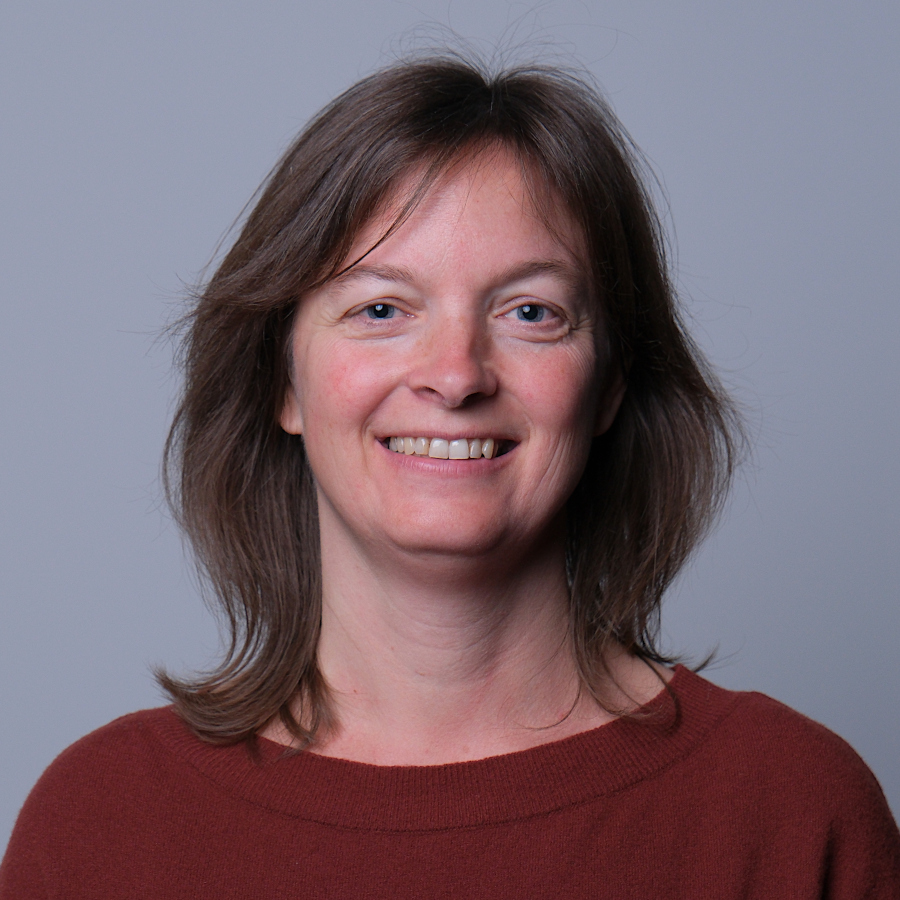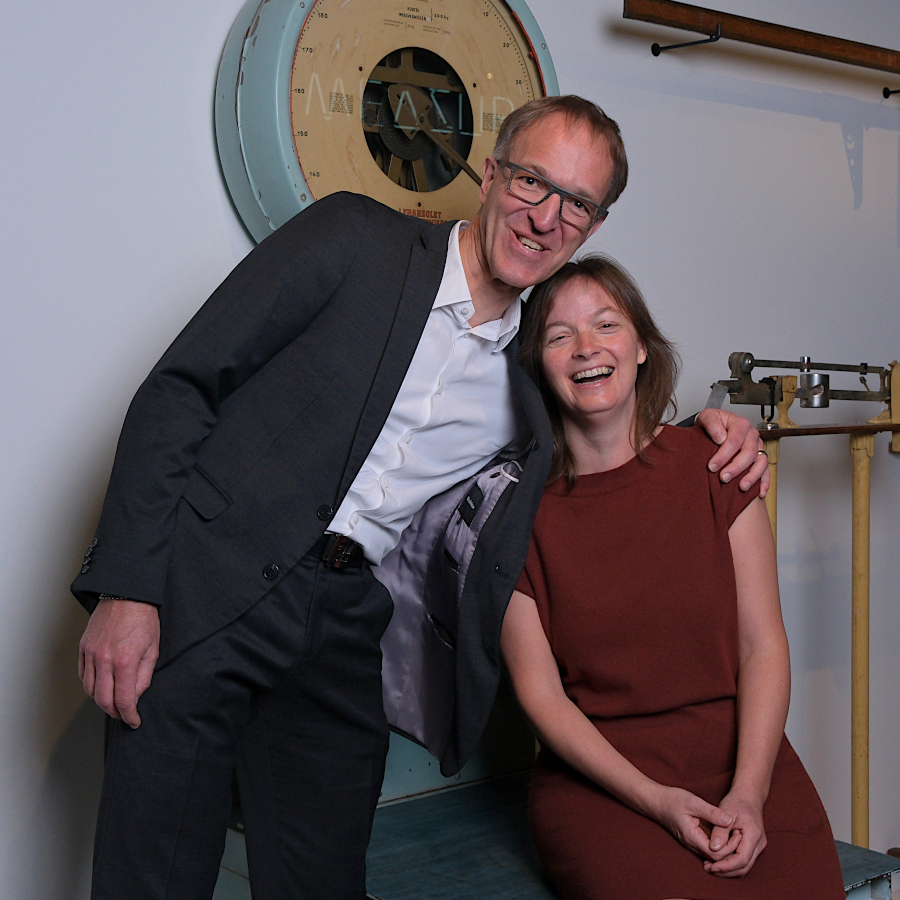Biography

Rik Van de Walle
I was born in 1970 and obtained the degree of Master of Science in Engineering Physics and Doctor of Engineering at the Faculty of Engineering and Architecture at Ghent University. After a visiting post-doctoral fellowship at the University of Arizona (Tucson, USA) I returned to Ghent, became a full-time assistant professor (‘docent’) in 2001 and set up the Multimedia Lab. This research group was one of the founding research groups of iMinds (since 2016 imec) and was renamed in 2016 as Internet & Data Lab (IDLab) after a merger with two other research groups (across departmental and even university boundaries). IDLab has now become a very large group: about 350 members are part of it.
From 2012 to 2017 I was Dean of the Faculty of Engineering and Architecture, and from 2014 to 2017 Chair of the Department of Electronics and Information Systems. I am also a member of the imec board. Since 2016 I am a member of the Royal Flemish Academy of Belgium for Sciences and Arts (Technical Sciences).
In 2017 and 2021, I was elected rector of Ghent University, together with Mieke Van Herreweghe who was elected vice-rector twice. By now you know that I am – together with candidate vice-rector Ilse Derluyn – candidate rector for the period 2025-2029. Also in this period, I want to serve our university, our staff and our students.
I am married to Brenda Delcloo, dad of a son and a daughter, step-dad of Mauro and a Plan Parent. A significant portion of my childhood was spent on and around tennis courts. My current sports activities can best be described as ‘dedicated endurance athlete’, with one to two participations in large city marathons each year.
Finally I was a passionate flutist for many years. I have the best memories of numerous concerts I played as a member of different orchestras and ensembles. In recent years, however, my musical ambitions have become limited: they don’t reach further than attending a good concert from time to time.
Any other free time I like to fill up with a good book. Fiction or non-fiction? I haven’t really got any preferences. When choosing a book I am mostly led by what friends and acquaintances recommend, or by chance meetings with books in shop windows or on bookshelves.
My academic career and my personal trajectory clearly show that I like things to move forward. I don’t only want to dream, I also want to realise those dreams. The marathons I run are lessons in patience and focus. ‘When you run the marathon, you run against the distance, not against the other runners and not against the time’ is what the Ethiopian athlete Haile Gebreselassie says, one of the greatest long distance runners of all times. He is right. You do not run against the other runners, you run with them. You can only reach the final goal when you are supported by many people, not only during the marathon but also in the period before. Because, don’t be mistaken: the famous runner’s high does exist, but it only comes after countless hours of preparation!

Ilse Derluyn
I was born in Roeselare in 1977. After completing secondary education at “Barnum,” I graduated from Ghent University in 2000 with a Licentiate degree in Educational Sciences, specializing in Orthopedagogics. As early as June of that year, I started working part-time as a music therapist at the psychotherapeutic center Rustenburg. From September 2000 onward, I combined that role with part-time, short-term research assignments, both at Ghent University (UGent) and at the therapeutic community De Kiem.
In the meantime, I prepared my BOF doctoral fellowship application, and in January 2002 I started working full-time at UGent’s Department of Orthopedagogics. There, I pursued a PhD in Educational Sciences under the supervision of the late Professor Eric Broekaert. I successfully defended my PhD at the end of May 2005. My dissertation focused on the psychosocial well-being of young refugees who migrate without their parents – a topic that, at the time, was not yet on the radar (scientifically or politically), but with which I had personal experience as the foster sister of such an “unaccompanied minor.” During my doctoral research, I also made my first trip to Northern Uganda, where I studied signs of post-traumatic stress in former child soldiers. This resulted in a publication that garnered worldwide attention, including from the team at the International Criminal Court in The Hague. Within the context of my doctoral work, I also conducted research on so-called “transit migrants” who attempted to travel from Zeebrugge to the United Kingdom without the necessary documents – another theme that continued to engage me in later work.
These three groups – young refugees, war-affected children, and people still “on the move” – have remained central to my research. Throughout, I have maintained a focus on their well-being, examining the broad range of factors that influence it and how we can provide effective support.
After what, to me, felt like a relatively long period as a postdoctoral researcher in various roles – and a short stint as a lecturer at HoGent – I became an assistant professor in 2012 at the Department of Social Work and Social Pedagogy in the Faculty of Psychology and Educational Sciences (Ghent University).
During this time, I continued building my research program and also developed strong collaborations. I co-founded the Centre for Children in Vulnerable Situations – a partnership between KU Leuven, the Vrije Universiteit Brussel, and UGent – where we conduct research on the well-being of communities in the Global South, while also establishing links to service provision and policy. Through this initiative, I helped support the development of two centers – one in Eastern Congo and one in Northern Uganda – where local staff provide psychological care to war-affected communities. To this day, I regularly visit our center in Uganda to offer training to the local staff and to stay involved in research on our interventions.
In 2015, I founded the Centre for the Social Study of Migration and Refugees (CESSMIR) – a network of UGent researchers who focus on the social dimensions of migration and forced displacement. In 2018, CESSMIR became a recognized Interdisciplinary Consortium (IDC). Within this IDC, our work highlights two recurring themes across my career: interdisciplinary research and close engagement with both practice and policy. This same emphasis was evident in my ERC Starting Grant project ChildMove and in my role as coordinator of the H2020 RIA project RefugeesWellSchool, in which I connected my core research themes to practice and policy. In 2018, I became a full professor through a fast-track procedure.
My involvement in policymaking at UGent dates back quite a while: as a student, I served as a representative in the UGent board of governors. Later, as a postdoc, I represented the Assistant Academic Staff (OAP) in the Research Council. After I became a ZAP-member in 2012, I continued to serve on the Research Council for ten more years, five of which I spent as chair of the “alpha committee.” Since 2018, I have served on UGent’s board of governors as the “12th woman,” a position in which I have aimed to advance themes such as well-being and excellence in research. Within the Faculty of Psychology and Educational Sciences, I have been a member of the programme committees for both Pedagogical Sciences and Social Work since 2012, and I also spent several years serving as the faculty diversity coordinator.
Social commitment and engagement have always been part of my life – initially in the large family I grew up in, where trust and independence were central values. Later, I took on roles in my free time with the youth organization KAJ, with Wereldsolidariteit (World Solidarity), and on the student council at “Barnum.” I brought this breadth of experience and perspective with me to UGent. Warmth, a global outlook, and the freedom to follow one’s own path – while appreciating differences among people – are small but important “building blocks” that I hope my daughter, my three sons, and my three grandchildren will also carry forward in their own ways.
Like Rik, I was very involved with music during my youth – piano, flute, percussion, and so forth. Music offered me personal development, but also taught me about its therapeutic power – for myself and in group performances. Now, when I’m not at UGent, I spend most of my time with my children, family, loved ones, and friends; I also enjoy reading, walking, and traveling.
Drawing on this personal and professional background, as well as my extensive experience in policy-making, I am now eager and fully committed to taking on the role of vice- rector. In this position, I aim to continue advancing the same core topics that have motivated me throughout my career: well-being, groups in vulnerable social positions, diversity, excellence and interdisciplinarity in research, and the relationship between research and society – with a particular focus on the Global South.

